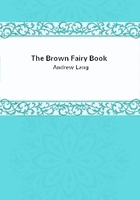As the priests listened to the apostles' fearless words, "they took knowledge of them, that they had been with Jesus."Of the disciples after the transfiguration of Christ it is written that at the close of that wonderful scene "they saw no man, save Jesus only."Matthew 17:8."Jesus only"-- in these words is contained the secret of the life and power that marked the history of the early church.When the disciples first heard the words of Christ, they felt their need of Him.They sought, they found, they followed Him.They were with Him in the temple, at the table, on the mountainside, in the field.They were as pupils with a teacher, daily receiving from Him lessons of eternal truth.
65
After the Saviour's ascension, the sense of the divine presence, full of love and light, was still with them.It was a personal presence.Jesus, the Saviour, who had walked and talked and prayed with them, who had spoken hope and comfort to their hearts, had, while the message of peace was upon His lips, been taken from them into heaven.As the chariot of angels received Him, His words had come to them, "Lo, I am with you alway, even unto the end." Matthew 28:20.He had ascended to heaven in the form of humanity.They knew that He was before the throne of God, their Friend and Saviour still;that His sympathies were unchanged; that He would forever be identified with suffering humanity.They knew that He was presenting before God the merit of His blood, showing His wounded hands and feet as a remembrance of the price He had paid for His redeemed ones; and this thought strengthened them to endure reproach for His sake.Their union with Him was stronger now than when He was with them in person.The light and love and power of an indwelling Christ shone out through them, so that men, beholding, marveled.
Christ placed His seal on the words that Peter spoke in His defense.Close beside the disciple, as a convincing witness, stood the man who had been so miraculously healed.The appearance of this man, a few hours before a helpless cripple, but now restored to soundness of health, added a weight of testimony to Peter's words.Priests and rulers were silent.They were unable to refute Peter's statement, but they were nonetheless determined to put a stop to the teaching of the disciples.
66
Christ's crowning miracle--the raising of Lazarus--had sealed the determination of the priests to rid the world of Jesus and His wonderful works, which were fast destroying their influence over the people.They had crucified Him; but here was a convincing proof that they had not put a stop to the working of miracles in His name, nor to the proclamation of the truth He taught.Already the healing of the cripple and the preaching of the apostles had filled Jerusalem with excitement.
In order to conceal their perplexity, the priests and rulers ordered the apostles to be taken away, that they might counsel among themselves.They all agreed that it would be useless to deny that the man had been healed.
Gladly would they have covered up the miracle by falsehoods; but this was impossible, for it had been wrought in the full light of day, before a multitude of people, and had already come to the knowledge of thousands.
They felt that the work of the disciples must be stopped or Jesus would gain many followers.Their own disgrace would follow, for they would be held guilty of the murder of the Son of God.
But notwithstanding their desire to destroy the disciples, the priests dared not do more than threaten them with the severest punishment if they continued to speak or to work in the name of Jesus.Calling them again before the Sanhedrin, they commanded them not to speak or teach in the name of Jesus.But Peter and John answered: "Whether it be right in the sight of God to hearken unto you more than unto God, judge ye.For we cannot but speak the things which we have seen and heard."67
Gladly would the priests have punished these men for their unswerving fidelity to their sacred calling, but they feared the people; "for all men glorified God for that which was done." So, with repeated threats and injunctions, the apostles were set at liberty.















